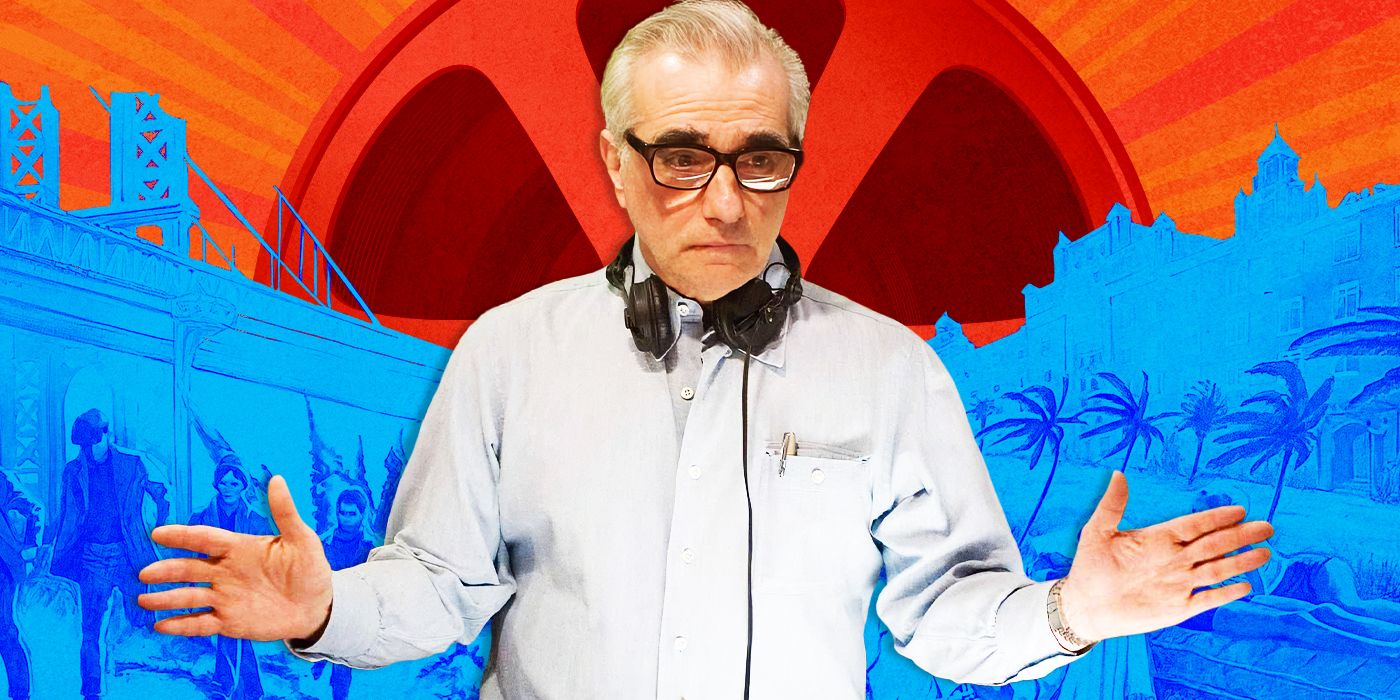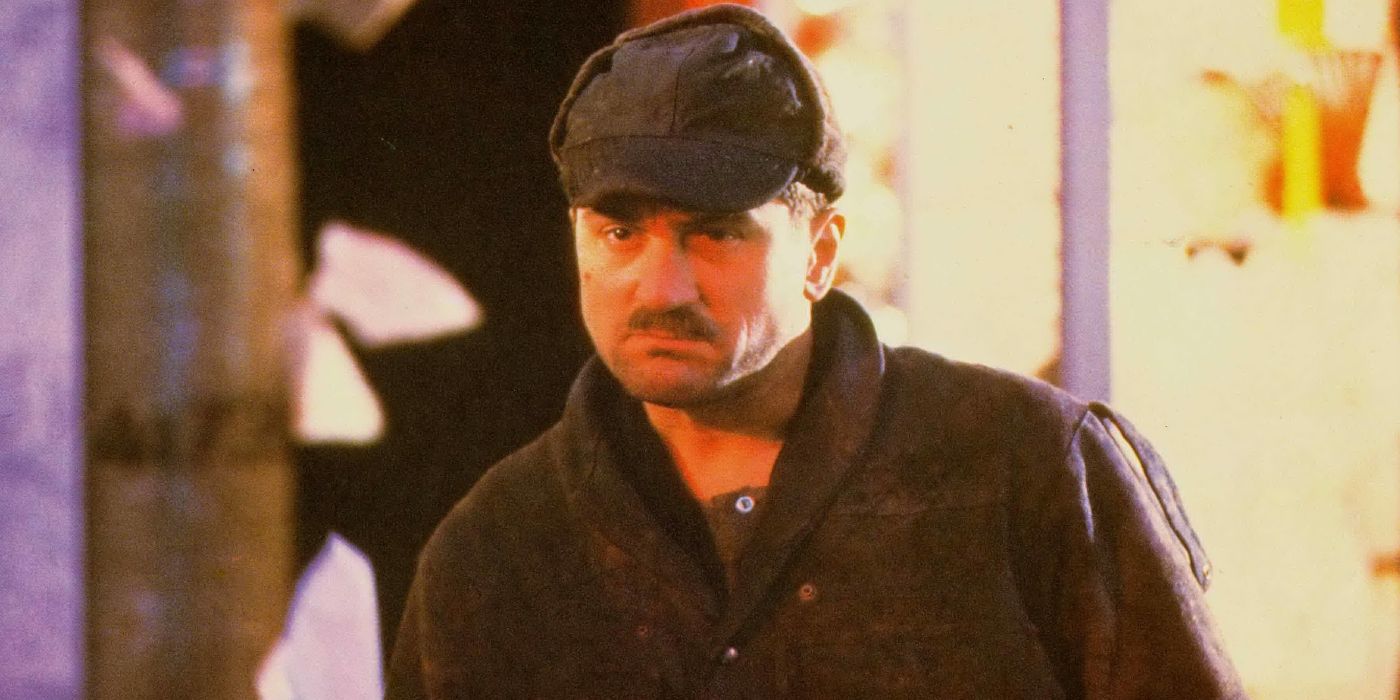The Big Picture
- Terry Gilliam’s film Brazil, with its postmodern spin on Orwellian themes, is considered one of his best and has grown in estimation since its 1985 release.
- Gilliam faced a stand-off with Universal Pictures during the film’s post-production, but thanks to Robert De Niro’s intervention, Brazil was saved from being shelved by the studio.
- De Niro used his influence to spread awareness of Brazil‘s existence, leading to private screenings for critics and eventually a theatrical release, showcasing the power movie stars have in defending artistic works.
Brazil, one of Terry Gilliam‘s best movies, was ahead of its time. Its postmodern spin on the work of George Orwell through the wringer of Gilliam’s sharp sense of humor made the film indelible in 1985. Since its release, it has only grown in estimation among the public. Gilliam’s film is something you have to see once. In the film’s post-production stage, the director faced a stand-off with his bosses at Universal Pictures, threatening its theatrical release. Until Brazil star Robert De Niro stepped in, the film was close to being shelved by the studio.
Brazil
A bureaucrat in a dystopic society becomes an enemy of the state as he pursues the woman of his dreams.
- Release Date
- December 18, 1985
- Director
- Terry Gilliam
- Runtime
- 132 minutes
Terry Gilliam’s Sharp Cinematic Style Shapes ‘Brazil’
Before his foray into feature filmmaking, Terry Gilliam belonged to the Monty Python comedy troupe, along with the likes of John Cleese and Eric Idle. Gilliam was the only American-born member of the legendary comedy team. He blended the group’s acerbic wit into his solo directorial career, which primarily focused on themes of dystopia and authoritarianism, and created a distinct visual language that consisted of psychedelic imagery and fantastical elements. With films such as Time Bandits, The Fisher King, 12 Monkeys, and Fear and Loathing in Las Vegas, Gilliam elevated himself to a class of prestige filmmaking while never bailing from his core roots of tragicomedy.
No Terry Gilliam movie best exemplifies his artistic voice quite like Brazil. The film, starring Jonathan Pryce, Monty Python alum Michael Palin, Katherine Helmond, and Bob Hoskins, follows a low-ranking bureaucrat, Sam Lowry (Pryce), who works a menial job, and searches for a mysterious woman in his dreams. Set in a dystopia heavily reliant on industrial machinery, Brazil is indebted to Orwellian texts, particularly Nineteen Eighty-Four. Before critics and audiences ever embraced Gilliam’s twisted and Kafkaesque outlook of the future, Brazil needed to be seen by the public, which was an arduous process for Gilliam.
What Was the Feud Between Terry Gilliam and Universal Pictures?
As a guest on The Hollywood Reporter’s podcast It Happened in Hollywood, Gilliam sat down to discuss the tumultuous stand-off that manifested between him and the studio behind Brazil, Universal Pictures. “The studio did not like the movie at all,” Gilliam revealed. Emphasizing his disdain for the film, the head of Universal at the time, Sid Sheinberg, personally told Gilliam that he hated the picture, specifically the ending, which did not satisfy traditional norms of “happy endings,” according to a Washington Post story. Sheinberg demanded that Gilliam make drastic alterations to the final cut. If not, Brazil would never see the light of day. A Los Angeles Times story reported that he was willing to accept a loss on its $9 million investment in the film. Sheinberg, who shopped the film to other distributors, claimed that Brazil had a commercial potential of “something close to zero.” Gilliam, who demonstrates artistic bravado with his films, was not going to stand down lightly in the face of his bosses at Universal.

Martin Scorsese Saved Sergio Leone’s Last Film After the Studio Butchered It
This crime movie was given a new lease on life by one of the world’s top filmmakers.
“We can’t fight them with lawyers. Let’s go about it a different way.” Gilliam recalled on the podcast. His course of action led him to take out a full-page ad in Variety, which read, “Dear Sid Sheinberg: When are you going to release my film, Brazil?” signed Gilliam. The director posted a clipping of the magazine page on his Instagram account. There is no turning back after a maneuver of this valiance. This ostensibly called for a distribution war between Gilliam and Sheinberg, with the former remarking “That’s when the shit hit the fan.” According to Gilliam, Universal would go to any lengths to prevent the release of Brazil. In the Washington Post story, Gilliam attributes this desperate move to “sheer frustration. We didn’t seem to have any other weapons,” he said.
Regardless of the pressure from Sheinberg and the studio, Gilliam refused to back down. His next step was to put a call-out to “honest, decent journalists” who were interested in seeing the shelved film. Critics were bussed to Mexico to catch a screening. Despite the studio’s issues with Brazil, it was distributed internationally, specifically in European nations, where it was well-received. At this point, direct communication between Gilliam and Sheinberg ceased. Jack Matthews, a reporter for the L.A. Times, mediated between the two parties. However, it wasn’t until Brazil star Robert De Niro, who played the terrorist plumber Harry Tuttle, stepped up and saved the fate of Gilliam’s film.
Robert De Niro Helped Terry Gilliam During Press
The Killers of the Flower Moon actor is notoriously press-shy and taciturn, and far more likely to express passion over hot-buttoned political issues than the art of acting. Upon hearing that Brazil was being held hostage, De Niro (who initially wanted to play Michael Palin’s role, Jack Lint) volunteered to appear on Good Morning America. The ABC program had been eyeing De Niro for a while, so he used his cachet to spread the word of the film’s existence. In a segment hosted by Maria Shriver, Gilliam would appear alongside De Niro. Shriver turned to Gilliam and said, “I understand you’re having a problem with the studio.”
Gilliam would clarify Shriver’s point. “I’m having a problem with one man. His name is Sid Sheinberg, and he looks like this,” he announced while holding up a picture of Sheinberg. This outrageous public display inspired more private screenings of the film for critics. Furthermore, the Los Angeles Film Critics Association discovered a bylaw that confirmed that a film didn’t have to be released to qualify for awards. The group eventually handed Brazil awards for screenplay, directing, and Best Picture, upsetting Universal’s own Out of Africa. Sheinberg’s hand was forced. After its uproarious critical acclaim, Brazil finally received a theatrical release on December 18, 1985.
In the end, the film community appreciates Terry Gilliam’s brave efforts to get Brazil, which is often regarded as his masterpiece, in theaters. The feud between Gilliam and Sid Sheinberg and Universal Studios embodies the conflict between art and commerce. Studios’ preference towards the bottom dollar is even more pressing today, as films are viewed more as property than artistic works. In the most extreme cases, films are never released for tax write-off purposes, as seen with Warner Bros shelving Batgirl. Additionally, it is tough to imagine the Brazil drama heading in the director’s favor without the aid of Robert De Niro, as the power of the movie star is unparalleled. De Niro standing up for an artist in Gilliam against the domineering presence of studio executives was admirable. All movie stars ought to deploy their cachet to this degree.
Brazil is available to rent on Prime Video in the U.S.
Rent on Prime Video

